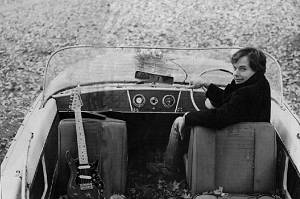Leo Kottke: Acoustic Pioneer Shifts Gears
By Mark Hanson
 |
In the late '60s and early '70s, Leo Kottke's blazing 12-string slide instrumentals set new benchmarks for steel-string fingerpicking virtuosity. His Capitol and Chrysalis recordings demonstrated that steel-string acoustic wizardry could be a saleable art form, setting the state for the large-scale successes of Windham Hill's Michael Hedges, Alex de Grassi, and Will Ackerman.
But Kottke's career has had its downside, as well. In the early '80s, a severe right hand and wrist problem caused him to seriously rethink his picking style. He severed his ties with Chrysalis, and took a three-and-a-half-year hiatus from recording. During that period, he took classical guitar lessons, discarded his fingerpicks, and learned to play with less hand tension. It proved to be a difficult transition for Kottke, but he eventually regained the volume and power that he once attributed to fingerpicks. Happy by-products of the changeover were an increased dynamic range and added tone colors.
Once Kottke was secure with his new picking technique, his creative juices began flowing again. The result was A Shout Toward Noon, a light hearted batch of instrumental pieces (the album's "Little Beaver" is transcribed on page 57).![]() With that disc and the subsequent Regards From Chuck Pink, he shifted his musical emphasis away from speed and power toward tonal richness and rhythmic intricacy. To be sure, Kottke's speed was still present, but his new rhythmic and compositional maturity allowed him to rely on it less. 1989's My Father's Face reintroduced Leo's voice, which he once described as sounding like "geese farts on a muggy day." He regularly includes his spoken ode to aging "My Father's Face" in concert.
With that disc and the subsequent Regards From Chuck Pink, he shifted his musical emphasis away from speed and power toward tonal richness and rhythmic intricacy. To be sure, Kottke's speed was still present, but his new rhythmic and compositional maturity allowed him to rely on it less. 1989's My Father's Face reintroduced Leo's voice, which he once described as sounding like "geese farts on a muggy day." He regularly includes his spoken ode to aging "My Father's Face" in concert.![]()
Certainly Kottke's guitar artistry is central to his virtual cult status, but his intelligent yet self- effacing sense of humor is an important part of the equation. He endears himself to audiences both with his instrument and by not taking himself all that seriously. He wants to have fun with his art, and wants to make sure his audiences have fun, too.